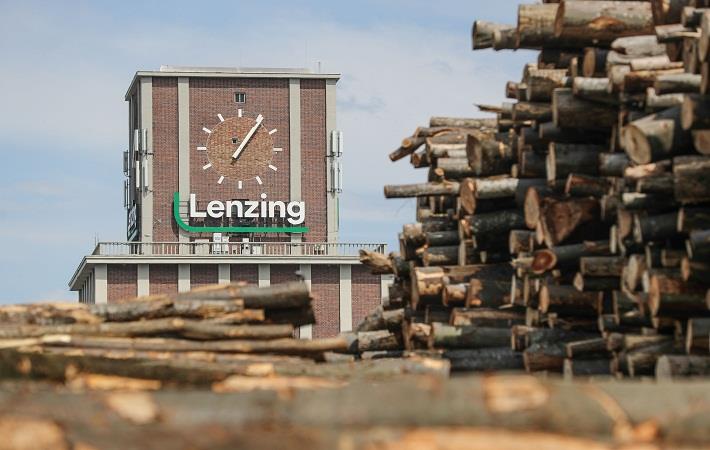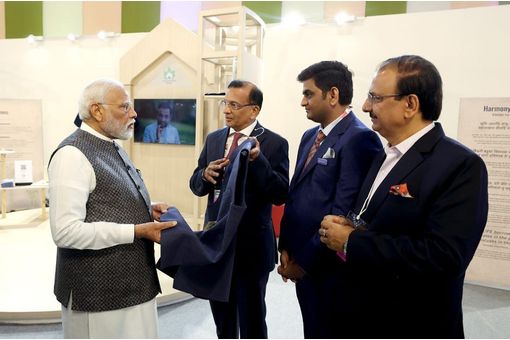Lenzing earns €1.62 bn revenue in Q3 despite trying times

The consistent implementation of the sCore TEN strategy and the focus on specialty fibres again had a positive impact on the revenue of the company. As a result, the decline in revenue and earnings in the first three quarters of 2019 due to the historically low standard viscose prices was mitigated. The share of specialty fibres in revenue, at 49.8 per cent, significantly exceeded the prior-year value of 44.1 per cent.
“Lenzing is very well positioned due to its strategic orientation and its strong focus on specialty fibres. This is reflected, more than ever, in the current market environment, which is marked by trade conflicts and historically low prices for standard viscose. This uncertainty can be felt throughout the textile value chain and leads to significantly more sluggish demand. Thanks to the performance of our specialty fibres, we have nevertheless been able to achieve a solid result,” said Stefan Doboczky, chief executive officer of the Lenzing Group.
“While the profit situation of many companies in the textile value chain is challenging, we are still optimistic thanks to our specialty strategy and expect a satisfactory result for the full year,” added Doboczky.
Lenzing has put the focus on stable and profitable growth as well as an improvement of the ecological footprint of the textile and nonwovens industries by expanding the production of specialty fibres. The decision to build a state-of-the-art lyocell plant with a capacity of 100,000 tons in Prachinburi (Thailand) is the next logical step to achieve this goal. In the third quarter, Lenzing chose Wood Plc as a general contractor for detailed engineering, purchasing and construction management and supervision.
In addition, the conversion of the production capacities from standard viscose to Lenzing Ecovero branded specialty viscose fibres, was also continued during the reporting period. Thanks to their excellent ecological footprint and their leading-edge identification technology, Lenzing Ecovero fibres have been very well received by the market.
Increasing the self-supply with dissolving wood pulp is another key element of the sCore TEN strategy. Lenzing and the Brazilian company Duratex continue to advance the construction of a 450,000-ton dissolving wood pulp plant in the state of Minas Gerais (Brazil). The basic engineering, site grading and the applications for required permits are proceeding according to plan.
In addition, the expansion and modernisation of the pulp plant in Lenzing were completed in the third quarter. Lenzing invested €60 million, increasing the production capacity for dissolving wood pulp to 320,000 tons per year.
Lenzing will use blockchain technology to support its Tencel branded fibre business, ensuring complete transparency and traceability for brands and consumers of its fibres in the finished garment. In the second quarter Lenzing announced a cooperation with the technology company TextileGenesis to accomplish this ambition; in the third quarter, Lenzing presented its first pilot project at the Hong Kong.
The Tencel brand’s visibility was further increased through co-branding during the reporting period. Compared to the same period of 2018, the number of end products labeled with the Tencel brand increased from 41 million to 102 million. The digital marketing concept “Where to buy” was introduced on the product website in the first quarter of 2019. Based on this concept, products made from Tencel fibres can be presented and linked in the online shops of more than 110 partners, including brands like H&M, Levi’s, Allbirds, Victoria Secret, Esprit, Pottery Barn and Asos.
Lenzing is investing more than €100 million in energy-saving measures, the conversion to renewable energies and in new technologies, thus strengthening its position as a front runner in climate protection both in the production industry and in particular also in the fibre industry. In the second quarter Lenzing announced its ambitious climate strategy. The goal is to reduce net emissions of greenhouse gases to zero by 2050. An important milestone on the way to becoming climate-neutral is set for the year 2030. By then Lenzing has committed to reduce emissions per ton of fibres and pulp by 50 per cent compared with 2017.
The International Monetary Fund expects a slowdown of global economic growth to 3 per cent in 2019, mainly driven by increasing protectionist tendencies and growing geopolitical tensions. The currency environment in the regions relevant to Lenzing will remain volatile.
Global fibre demand has weakened. Trade conflicts have caused nervousness and declining demand throughout the textile value chain. According to preliminary calculations, cotton inventory levels will continue to increase in the 2019/20 season because a good harvest is expected. The price levels for cotton and polyester are expected to remain subdued. Capacity expansions for standard viscose, coupled with sluggish demand due to the trade conflicts, caused higher pressure on prices, which fell to a new historic low in the third quarter of 2019. In specialty fibres, the Lenzing Group expects a comparatively positive development of its business.
Driven by the challenging situation in standard viscose and low paper pulp prices, prices for dissolving wood pulp remain on a comparatively low level. Caustic soda prices in Asia have already declined significantly over the past months; this development is now also noticeable in Europe.
The very challenging and volatile market environment in general, paired with erratic developments in the trade disputes between the major economic blocks plus the high level of uncertainty in the textile value chain, significantly impacting earnings visibility. Based on the above mentioned economic environment, the Lenzing Group expects the result for 2019 to be slightly below the level of 2018.
The Lenzing Group stands for ecologically responsible production of specialty fibres made from the renewable raw material wood. As an innovation leader, Lenzing is a partner of global textile and nonwoven manufacturers and drives many new technological developments. The Lenzing Group’s high-quality fibres form the basis for a variety of textile applications ranging from elegant ladies clothing to versatile denims and high-performance sports clothing.
Fibre2Fashion News Desk (PC)
































-Ltd..jpg?tr=w-120,h-60,c-at_max,cm-pad_resize,bg-ffffff)





.jpg?tr=w-120,h-60,c-at_max,cm-pad_resize,bg-ffffff)
.jpg?tr=w-120,h-60,c-at_max,cm-pad_resize,bg-ffffff)






